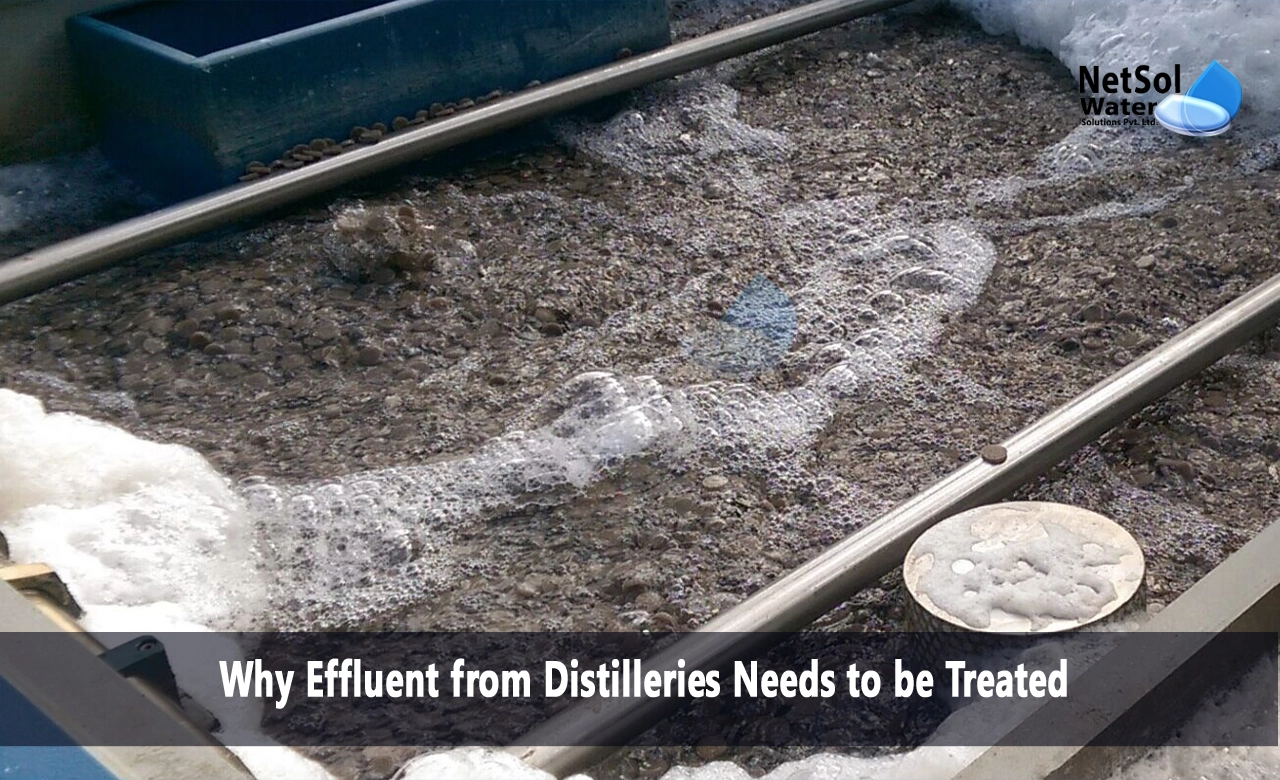The distillation industry plays a pivotal role in the production of alcoholic beverages, ranging from whiskey to vodka. However, the process of distilling these spirits generates a significant amount of effluent, posing substantial environmental challenges. This effluent contains various pollutants that can harm aquatic ecosystems and human health if not properly treated. Therefore, effective effluent treatment for distilleries is essential to mitigate environmental impacts and ensure sustainability in the alcohol production industry.
What are Distilleries?
Distilleries are facilities where alcoholic beverages are produced through the process of distillation. This process involves heating a fermented liquid mixture to separate alcohol from water, producing a more concentrated form of alcohol. Distilleries typically use grains, fruits, or other organic materials as raw ingredients for fermentation, resulting in the production of ethanol. These facilities are required to comply with regulatory requirements set by different state and federal agencies, which dictate the amount of wastewater discharge, water quality standards, and other environmental regulations.
Why Effluent from Distilleries Needs to be Treated
Effluent generated from distilleries contains a complex mixture of organic and inorganic substances, including sugars, alcohols, organic acids, and suspended solids. These pollutants can have adverse effects on the environment if discharged untreated into water bodies. Key reasons why effluent from distilleries needs to be treated include:
1. Impact on Aquatic Ecosystems: Untreated effluent can deplete oxygen levels in water bodies due to microbial degradation of organic matter, leading to aquatic habitat degradation and the death of aquatic organisms. The high organic load in the wastewater can also lead to an increase in Biochemical Oxygen Demand (BOD) and Chemical Oxygen Demand (COD), affecting the quality of water sources.
2. Eutrophication: Effluent may containhigh levels of nutrients such as nitrogen and phosphorus, which can promote excessive algal growth in receiving water bodies, resulting in eutrophication and the subsequent depletion of oxygen.
3. Human Health Concerns: Contaminants present in untreated effluent can contaminate drinking water sources, posing risks to human health through the ingestion of contaminated water or consumption of contaminated aquatic organisms.
4. Regulatory Compliance: Governments enforce regulations to protect water quality and ecosystems, mandating distilleries to treat their effluent before discharge to meet specified standards.
Process Involved in Effluent Treatment
Effluent treatment for distilleries involves several stages aimed at removing or reducing pollutants to acceptable levels before discharge. The treatment process typically includes the following steps:
1. Preliminary Treatment: This step involves the removal of large solids and debris from the effluent through physical processes such as screening and sedimentation. Screening removes large objects, while sedimentation allows suspended solids to settle out of the effluent.
2. Primary Treatment: In primary treatment, the effluent undergoes further sedimentation to separate suspended solids, fats, oils, and greases. This process reduces the organic load in the effluent before proceeding to secondary treatment.
3. Secondary Treatment: Secondary treatment aims to remove dissolved and colloidal organic matter, as well as nutrients, from the effluent. Common secondary treatment methods include biological processes such as activated sludge, trickling filters, and sequencing batch reactors. These processes utilize microorganisms to break down organic pollutants into simpler, less harmful substances.
4. Tertiary Treatment: Tertiary treatment is an additional step employed to further improve effluent quality, especially in cases where stringent discharge standards must be met. This step may include advanced filtration techniques, such as membrane filtration or reverse osmosis, to remove remaining contaminants and produce high-quality effluent suitable for discharge or reuse.
5. Disinfection: The final step in effluent treatment involves disinfection to eliminate harmful pathogens and bacteria. Common disinfection methods include chlorination, ultraviolet (UV) irradiation, and ozonation. Disinfected effluent can then be safely discharged into receiving water bodies or reused for non-potable purposes, such as irrigation or industrial processes.
Conclusion
Effluent treatment is a critical aspect of sustainable distillery operations, ensuring that environmental impacts are minimized, and regulatory requirements are met. By treating effluent before discharge, distilleries can protect aquatic ecosystems, safeguard public health, and demonstrate their commitment to environmental stewardship. Implementing effective effluent treatment technologies and practices not only benefits the environment but also contributes to the long-term viability of the distillery industry. As the global demand for alcoholic beverages continues to rise, it is imperative for distilleries to prioritize responsible wastewater management to preserve water quality and promote sustainable development.
Netsol Water is Greater Noida-based leading water & wastewater treatment plant manufacturer. We are industry's most demanding company based on client review and work quality. We are known as best commercial RO plant manufacturers, industrial RO plant manufacturer, sewage treatment plant manufacturer, Water Softener Plant Manufacturers and effluent treatment plant manufacturers. Apart from this 24x7 customer support is our USP. Call on +91-9650608473, or write us at enquiry@netsolwater.com for any support, inquiry or product-purchase related query.



